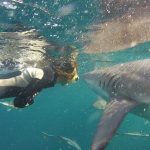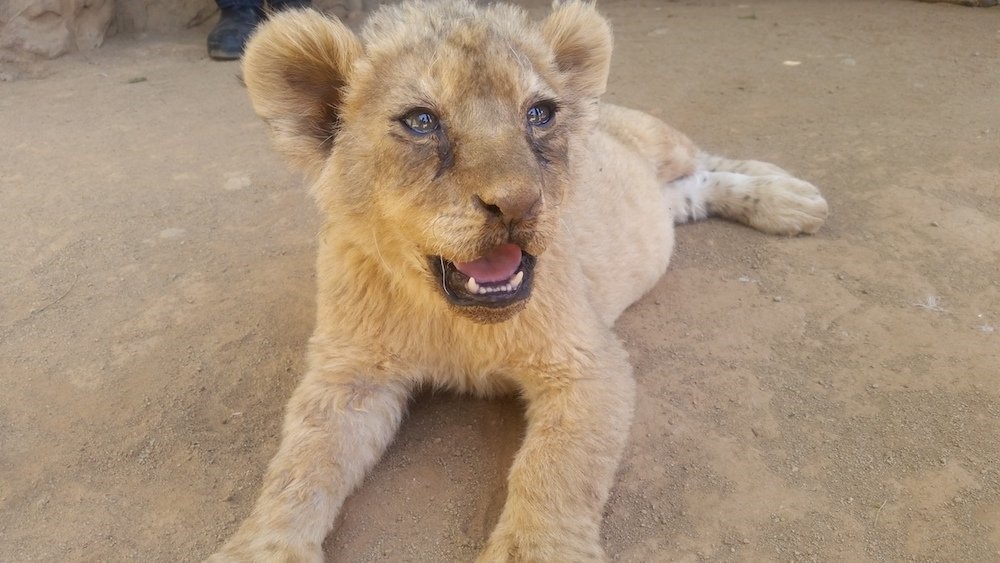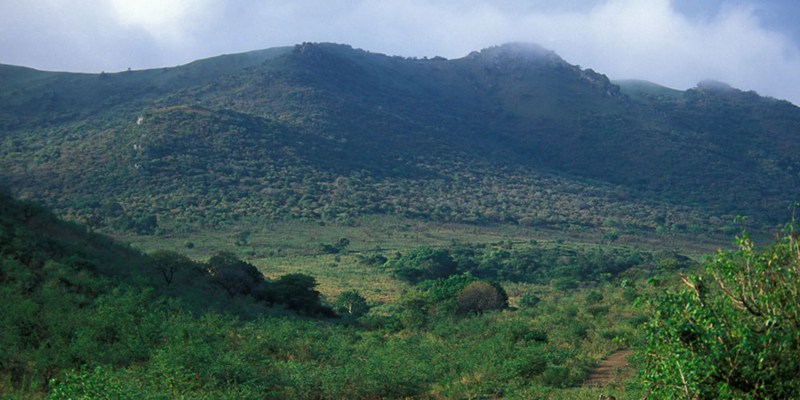For too long, we’ve got it wrong when it comes to conservation. Fortunately some, especially the young, are pointing us in the right direction, writes Francois du Toit

Young black South Africans are challenging the way we look at our planet and how best to use its natural resources.
A new generation on the continent and elsewhere are questioning the way we do things, including deeply ingrained racial bias.
Merlyn Nomsa Nkomo, an aspirant ornithologist and Conservation Biology Masters student at UCT, reminds us that there is a prevailing stereotype that black people in South Africa believe that the love of nature and wildlife is a “white thing”.
Detached
In a recent article in the student publication iLizwi, Nkomo makes the point that conservationists are frequently detached from social realities.
They are, she says, focused on being published in academic journals and “travelling and working in remote and picturesque places” at the expense of grappling with real problems which threaten the entire conservation project.
These include poverty, social inequality and a prevailing system dating back to the colonial era when “parks were fortresses to protect nature from black communities that had lived with it in harmony for centuries before”.
This is indeed a tragedy which only a few seem committed to addressing.
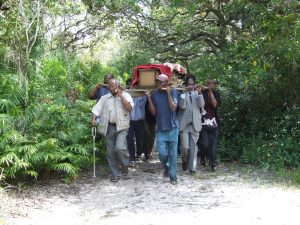
Hardships that people living in eNkovukeni, a remote island community in the farthest northern reaches of the iSimangaliso World Heritage site are an example of conservationists failing to consider the needs of people who for centuries lived in harmony with nature. Photos: Fred Kockott

Solutions
With the multiple threats of a Covid-19 global pandemic, drought, human population growth, habitat loss and increasing human wildlife conflict, what we require now, more than ever are African solutions for Africa problems, by African people.
Nothing about us without us.
The new generation of youth and leaders in Africa understand and value a growing ‘wild economy’ that drives rural development through the sustainable use of wildlife, the socio-economic benefits of ecotourism and co-managed conservation areas.
Growth
It creates more jobs than any other sector and is growing at a higher rate than any other. It now needs to become an all-encompassing economy that is generational, responsible and sustainable.
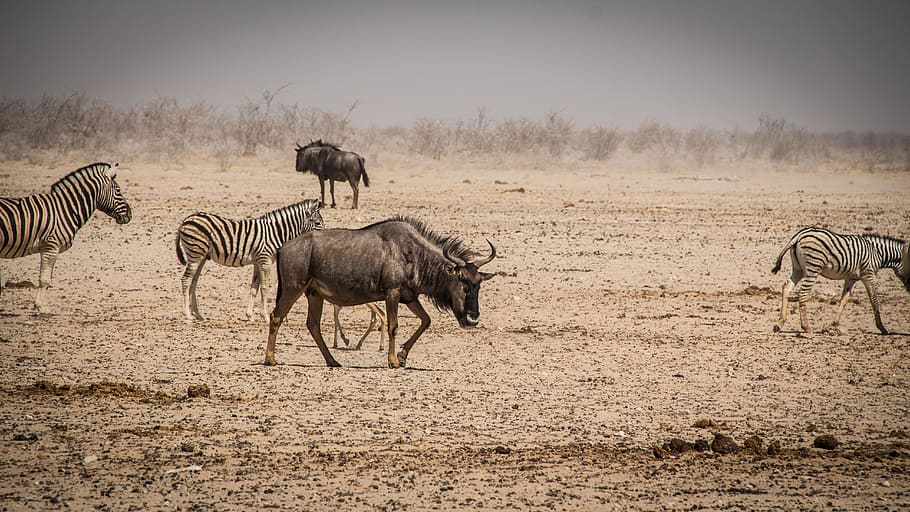
Many of us see this value, but empty stomachs have no ears. We have real pressing issues of poverty, unemployment and hunger, to address. Yet we are blessed the last remaining megafauna and vast open spaces that exist only in many people’s wildest imagination – or on Nat Geo channels.
Yet for most, the debate on sustainable use and, in fact, the wildlife economy, pivots around hunting, tourism and trade. You are either for hunting or against it. You are either for trade or against it. Why not responsible use? If is it not ethical, equitable, ecologically and economically sound, it shouldn’t be permitted? It’s as simple as that. In my eyes, a high-end, luxury photographic safari, using thousands of litres of water per person per night, creating only a few jobs falls into the same category as captive lion breeding.
Demand driven
The wildlife economy is not only about hunting, tourism and bioprospecting – the use of plants and animal species for medicinal drugs and other commercially valuable products. It is far broader than that – diverse, domestic, and demand driven.
And pangolin, rhino, elephant poaching and foreign vessels raping our shorelines are all symptomatic of a deeper ill that includes poor service delivery and corruption.
Basic needs
People starve while cash-fat tourists photograph or hunt game that indigenous communities rightly have a stake in. Ms Nkomo is on the money when she fingers our colonial history and exclusivity of our parks. Our new wildlife economy needs to start with basic needs.
Why are we not farming diversity? Well-managed rangelands supported many people in the past and ecological agriculture or wild management could well prove the provider. Game meat has massive potential to create hundreds of thousands of jobs alongside a vibrant red meat industry and a self-sustaining ecological approach to landscape management.
And most importantly, how do we make the wild economy attractive to our next generation, our youth?
What if we really invested in this wild economy? Created roads and infrastructure, and bursaries and discounted tertiary education to support it? Cleaned up our act, removed aliens and cleaned water courses because it makes economic and ecological sense.
50-year vision
What if we created a 50-year vision to grow our entire economy on the back of a wild economy? Link it to renewables, to clean water, air and soil, to carbon sequestration, to the red meat industry, grazing on open grasslands, not factory farmed via feedlots, but responsible, ethical, equitable, economic and ecologically sound use – a natural resource based economy.
If you had to make a choice between oil, gas and coal or clean air, clean water and clean soil what would you choose? The answer is obvious. It is in fact our constitutional responsibility to look after this for future generations. Let’s start talking about responsibility rather than rights?
Too often we turn to international experts for answers. We tend to forget that local is lekker. While international tourists generate fantastic local benefits, jobs and income, this latest pandemic has taught us is just how vulnerable we are. We need to become more self-sufficient. We need to feed ourselves first.
Amid this, our new wild economy must compete with vested commercial economic interests and extractive industries that have decimated landscapes, wetlands and forests in the name of progress.
Goal
Our goal should be to foster resilient, empowered, enterprising communities who understand, cherish, own, manage and protect the wild economy, reducing the need for donor and government support, enabling strong, responsible and sustainable communities.
That is what we should aim for, not cheap political points, or short-term economic gain. When the value on the inside of our wildlife reserves is appreciated and benefits realised (economically and socially), then we reduce conflict and begin to move in the right direction.
We need interventions as simple as homestead gardens, collaborative and large, scaled beekeeping enterprises, job creation through guiding, hunting, tourism development and maintenance. And we need to embrace age-old traditional income generation and practices in iconic locations.
In her article, Nkomo quoted Zimbabwean writer, author and publisher, Pathisa Nyathi: “Keep frowning on African culture and your birds will be driven extinct by what you call myths and superstitions. Beliefs are as real as their consequences.”
Last time I checked, we only have one earth, one Africa, one South Africa. Isn’t it time we started looking after it, and investing in it, instead of blaming each other for destroying it – or worse, tearing it apart for personal gain?
- Francois du Toit is the CEO of African Conservation Trust – an organisation that envisages a world that is able to sustain human life with abundant natural resources, which people can use not only to survive, but to flourish. Click here to read more stories in The Future We Want series.
You may republish this article, so long as you credit the author and Roving Reporters, and do not change the text. Please include a link back to the original article.
BANNER IMAGE
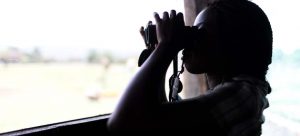
Now read: The Achilles Heel of Conservation
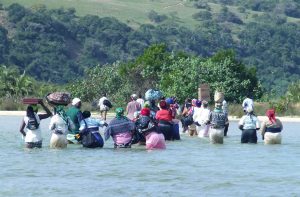 Conservation globally is a challenging battle. Movements against climate change, plastic pollution and deforestation in the Amazon are on the rise. So to are ground-breaking research and futuristic interventions, and yet the natural world is burning. Nowhere else is this more evident and an uphill battle than in Africa and this is why.
Conservation globally is a challenging battle. Movements against climate change, plastic pollution and deforestation in the Amazon are on the rise. So to are ground-breaking research and futuristic interventions, and yet the natural world is burning. Nowhere else is this more evident and an uphill battle than in Africa and this is why.


